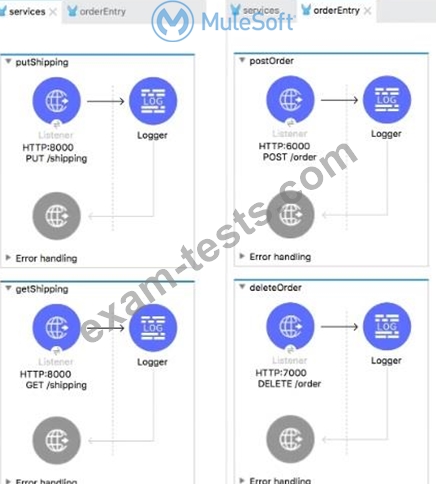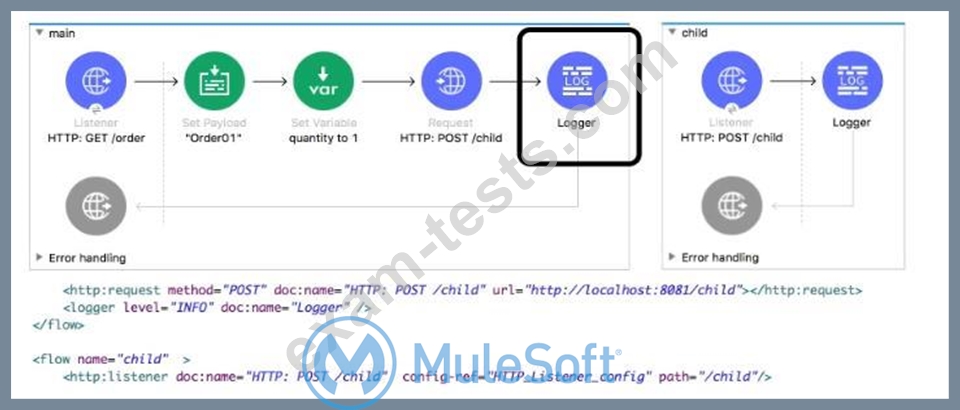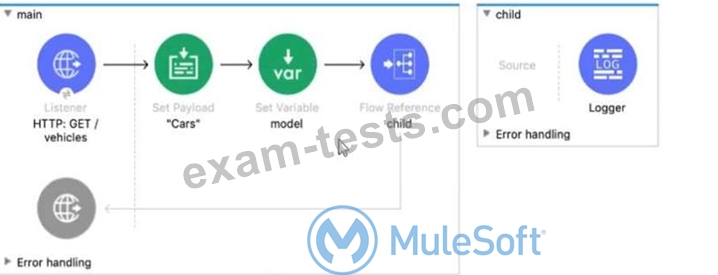Question 41
Which of the below is used by Mule application to manage dependencies which make sharing the projects lightweight and easier?
Question 42
Refer to the exhibits.

The two Mule configuration files belong to the same Mule project. Each HTTP Listener is configured with the same host string and the port number, path, and operation values are shown in the display names.
What is the minimum number of global elements that must be defined to support all these HTTP Listeners?

The two Mule configuration files belong to the same Mule project. Each HTTP Listener is configured with the same host string and the port number, path, and operation values are shown in the display names.
What is the minimum number of global elements that must be defined to support all these HTTP Listeners?
Question 43
To avoid hard-coding values, a flow uses some property placeholders and the corresponding values are stored in a configuration file.
Where does the configuration file's location need to be specified in the Mule application?
Where does the configuration file's location need to be specified in the Mule application?
Question 44
Refer to the exhibit. The main flow contains an HTTP Request in the middle of the flow. The HTTP Listeners and HTTP request use default configurations.
What values are accessible to the Logger at the end of the flow after a web client submit request to
http://local:801/order?color=red?

What values are accessible to the Logger at the end of the flow after a web client submit request to
http://local:801/order?color=red?

Question 45
Refer to the exhibits.

The main flow contains a Flow Reference to the child flow.
A web client sends a GET request to the main flow's HTTP Listener that includes a make query parameter.
What values are accessible in the child flow?

The main flow contains a Flow Reference to the child flow.
A web client sends a GET request to the main flow's HTTP Listener that includes a make query parameter.
What values are accessible in the child flow?

